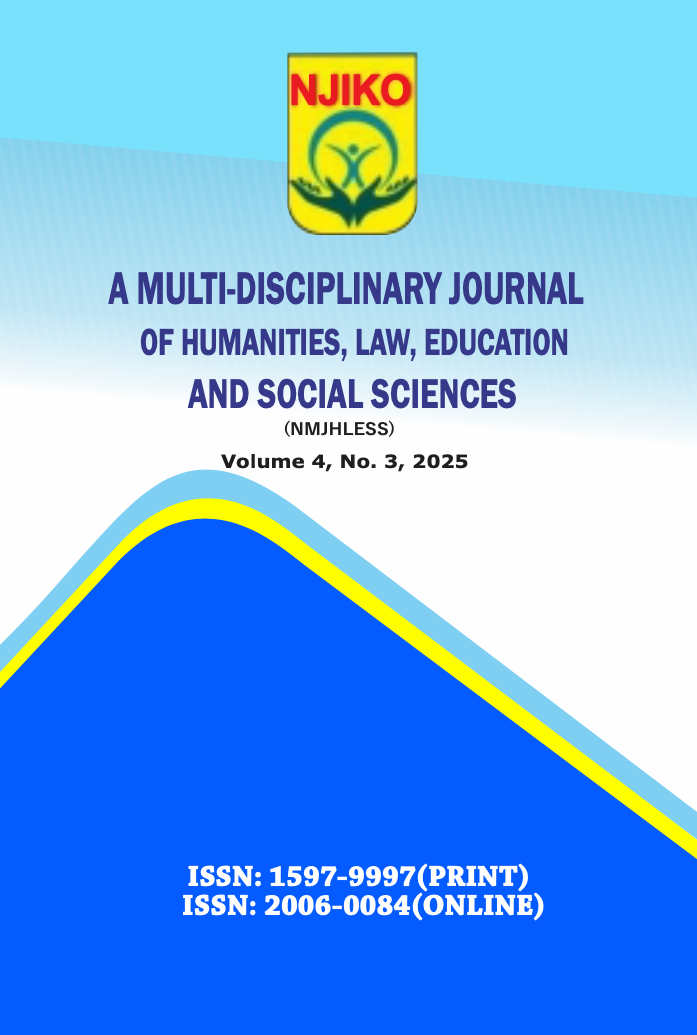NEW VOICES WITHIN THE DRAMATIC BORDERS: AN INTERROGATION OF THE THEMATIC TRENDS OF SELECTED PLAYS OF TRACIE UTOH-EZEAJUGH
Résumé
The world of modern dramatic consciousness and practice, has produced tremendous growth and development especially in the area of writing. Such that dramatic enactments have lent their spaces to expressions of human existence, experience; both consciousness and sub-consciousness. Hence, dramatic literature remains the critical medium of artistic expression where all aspects of human experiences are mirrored. Instructively, the playwrights, who emerged in the recent past of Nigerian dramatic writing, are seen as changing the direction being taken in the art of telling the story dramatically. They have, as such, constituted strong and viable voices which are articulating the diverse components and dimension of the society. These constitute the group of playwrights referred to as New Voices and they are bringing the much needed freshness through the re-sounding and articulation of their voices across dramatic realities. One of these emergent playwrights portrayed as 'new voices' is Tracie Utoh – Ezeajugh. It is against this backdrop that this paper takes a holistic and critical approach to initiate a thematic interrogation of her Our Wives Have Gone Mad Again! and Nneora: An African Doll's House. The methodology harnessed for the study recognizes the content analysis approach for analyzing the primary texts qualitatively. It has employed the Reader- Response Theory or Aesthetics of Reception as the theoretical framework, which implies that “a new individual 'text' evolves with every individual reading process”. The paper discovers that Our Wives Have Gone Mad Again!serves adramatic avenue for the portrayal of humanism through interrogation of the essence of women being in position of authority or power as well as unification of men and women in the fight against global decadence. While Nneora: An African Doll's Houseis used as a social crusading platform in tune with the nuances and cadences of the contemporary Nigerian society. In conclusion, the study tried to underscore the place of Tracie Utoh – Ezeajugh, categorized as a 'new voice', within the context of the navigation of her dramatic corpus filled with divergent thematic trends.


